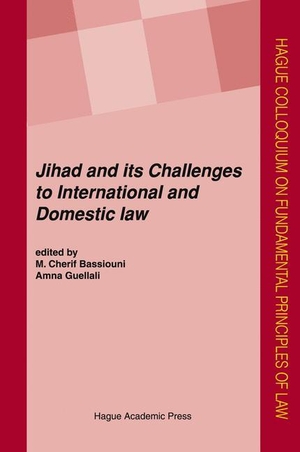Für statistische Zwecke und um bestmögliche Funktionalität zu bieten, speichert diese Website Cookies auf Ihrem Gerät. Das Speichern von Cookies kann in den Browser-Einstellungen deaktiviert werden. Wenn Sie die Website weiter nutzen, stimmen Sie der Verwendung von Cookies zu.
Cookie akzeptieren
Jihad and Its Challenges to International and Domestic Law
- Springer Nature Singapore
- 2010
- Gebunden
- 300 Seiten
- ISBN 9789067043120
Since the September 11 attacks on the World Trade Center, jihad has become symbolic of the confrontation between Muslims and the West. According to popular views, jihad represents a religiously sanctioned war to propagate or defend the faith by defensive and aggressive means. However, there is not one single meaning of jihad, but many different interpretations. In the most recent decades of Islamic history, jihad was invoked as an instrument for the legitimation of political action, be it armed resistance against foreign occupation, the struggle for self-determination, or retaliatory attacks against the West. The evolution and contemporary abuses of jihad cannot be understood without a connection
Mehr
Weniger
zzgl. Versand
Etwa 20 Tage